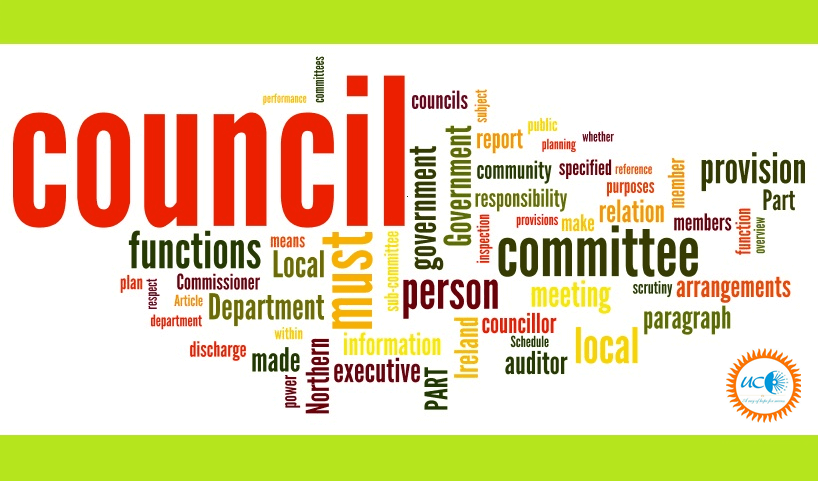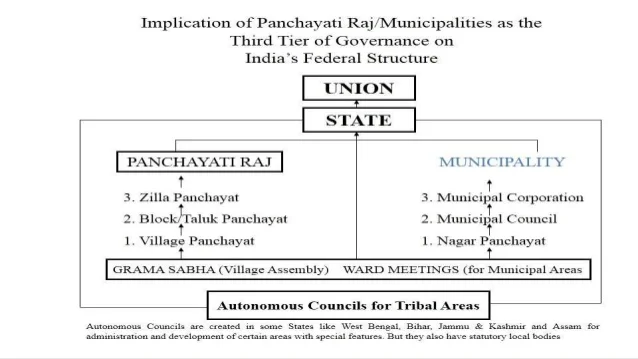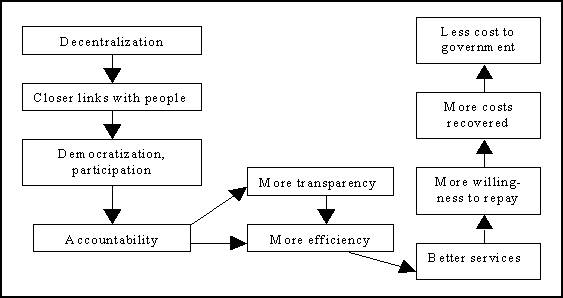Why local bodies are financially starved
Next year, India will celebrate the 30th anniversary of the enactment of the 73rd and 74th constitutional amendments. A lot remains to be done to have truly decentralised local bodies in the country.
- Democratic decentralisation empowers local political bodies to create institutions that are more accountable to local citizens and more appropriate to local needs and preferences.
What is Democratic Decentralisation?
- It is the process of devolving the functions and resources of the state from the Centre and State to the elected representatives at the lower levels so as to facilitate greater direct participation of citizens in governance.
- The creation of panchayats and municipalities as elected local governments was required by the 73rd and 74th Amendments, which established Panchayati Raj Institutions (PRIs) in India.
- The Constitution’s 11th Schedule lists the Panchayats’ duties, powers, and responsibilities.
- The Constitution’s 12th Schedule lists the duties, rights, and obligations of Municipalities.
How Democratic Decentralisation Impact Governance?
- Enhances Transparency: It also enhances the transparency of government, and the flow of information between government and citizens (in both directions).
- Transparency increases because a much larger number of people than before can see how the government works, and what is happening within the policy and political processes.
- Responsible Government: Effective democratic decentralisation increases government responsiveness. The government is responding with more measures and projects at a faster pace.
- Political and Civil Pluralism: Local government stimulates civil society, and as more people participate, the governance will become more active and competitive. This enhances civic and political pluralism.
- Alleviate Poverty: Because decentralised systems tend to give all venues an equal representation and access to resources, they can aid in reducing poverty that results from disparities between areas or locations.
What are the Challenges Related to Decentralisation in India?
- Infrastructural Loopholes: Many Gram Panchayats (GPs) lack a building of their own and share spaces with schools, anganwadi, and other entities.
- Despite having their own structures, some do not have the most basic amenities, including electricity, running water, and toilets.
- Panchayats have internet access, however it is not always available. For any data entry requirements, Panchayat representatives must travel to Block Development offices, which delays the job.
- Lack of Sufficient Financial Resources: Both rural local bodies (RLBs) and urban local bodies (ULBs) across the country are under financial stress. Urban local governments and panchayats rely heavily on grants-in-aid from state consolidated funds.
- The taxes that civic entities levy do not adequately cover the costs of the services provided. Additionally, local governments do not distinguish between revenue expenditures and capital expenditures, in contrast to the Center and the States.
- Lack of Accurate Data on Finance: The State Finance Commissions(SFCs) are not presented with accurate and updated data on the finances of the local bodies.
- Without disaggregated fiscal data for the PRIs and ULBs, no thorough fiscal analysis is possible.
- When there are no statistics, recommendations by SFCs frequently rely on the chairperson’s ad hoc judgement, which is not supported by any data.
- Downgraded Role of Local Government: Local governments are merely acting as an implementation machinery rather than an active policy-making body for local development.
- Corruption and Criminalisation of Politics: Decentralization has frequently just served to enable local elites to syphon off more public funds at the expense of the poor, and local political influence helps criminals justify their actions.
- Ceremonial Status to Mayor: The 2nd Administrative Reform Commission noted the Mayor in the Urban Local Government in most states enjoys primarily a ceremonial status.
- In most cases, the Municipal Commissioner, appointed by the State Government, has all the powers and the elected Mayor ends up performing the role of the subordinate.
- Irregular Elections: PRI (Panchayati Raj Institutions) elections are still unreliable. Recent local body elections were held in numerous states since the Union Finance Commission only recommended funding for “duly formed local governments” when recommending funds.
- Rule of Proxy: Women are given a third of the seats in local government organisations like panchayats and municipalities. Rule by proxy is a persistent issue that arises when male candidates use their women as puppets and rule from behind.
Way Forward:
- Organisational Strengthening: The organisational frameworks of local governments must be strengthened with adequate people. In order for panchayats to operate well, efforts should be taken to hire technical and support personnel.
- The 2nd ARC had also recommended that there should be a clear-cut demarcation of functions of each tier of the government.
- Fiscal Prudence: Fiscal decentralisation is essential to the ULB’s independence and financial stability. It ought to be supported by financial responsibility that can offer a long-term fix.
- State governments may establish audit committees at the district level to oversee the accuracy of financial data, the effectiveness of internal controls, adherence to the law, and the moral character of everyone working in local authorities.
- Local E-Governance: Urban local governments and Panchayats should be given the necessary digital infrastructure to maximise citizen involvement online, include different social groups in decision-making, and implement bottom-up policy-making practises using new technology.
- Grievance Redressal Mechanism: ULBs and Panchayats can establish a technology-enabled platform to register complaints, which will make city governments responsive to the needs of citizens.
- It should be possible for citizens to close complaints and offer comments through this technique.
- By addressing these structural and architectural issues with urban government, cities will be able to deliver services effectively, enhancing the standard of living for their residents.
- Sustainable Decentralisation: For sustainable decentralisation, transparency and accountability in the governance process is necessary, and for transparency there needs to be active citizen participation.
- To do this, ULBs can establish effective, decentralised forums for discussion and deliberation between elected officials and residents, such as area sabhas and ward committees.
UPSC Civil Services Examination, Previous Year Questions (PYQ) Prelims
Q1. Local self-government can be best explained as an exercise in (2017)
(a) Federalism
(b) Democratic decentralisation
(c) Administrative delegation
(d) Direct democracy
Ans: (b)
Q2. The fundamental object of the Panchayati Raj system is to ensure which among the following? (2015)
- People’s participation in development
- Political accountability
- Democratic decentralisation
- Financial mobilisation
Select the correct answer using the code given below
(a) 1, 2 and 3 only
(b) 2 and 4 only
(c) 1 and 3 only
(d) 1, 2, 3 and 4
Ans: (c)
Mains
Q1. Assess the importance of the Panchayat system in India as a part of local government. Apart from government grants, what sources can the Panchayats look out for financing developmental projects? (2018)
Q2. To what extent, in your opinion, has the decentralisation of power in India changed the governance landscape at the grassroots? (2022)







